
Dr. Sercan Sengun, Assistant Professor of Games and Interactive Media (GaIM), released Missing, an immersive VR thriller with a mental health message at its core, on the Meta app store. You can find it here: Missing on Meta Quest | Quest VR games | Meta Store
Dr. Sengun was on the design team of this prosocial experience among an international team of designers and developers. He provides a synopsis of the game: “Eleanor Parker, where are you?”
Explore our latest VR experience, Missing, now live on App Labs – it’s an immersive thriller with a mental health message at its core.
Using cutting-edge eye-tracking technology, you’ll search Eleanor Parker’s home for clues about what happened to her.
But Missing isn’t just a mystery, it serves a hidden purpose: to cultivate empathy and understanding for mental health issues through a uniquely immersive, first-person narrative. As the protagonist of this narrative, guided by your inner thoughts, you step into the shoes of someone living with a life-altering condition.”
In addition, he mentions any expectations people may have of the experience. “A short note before going through the answers is that I do not want to make any strong claims about the effectiveness of the app without proper research or specifically underline the types of issues that it can address. It is certainly about age- or trauma-based memory decline and confusion, but I do not feel comfortable saying that it is a “dementia simulator,” or use the term dementia at all. So, I use a bit of vague language purposefully.”
In an interview, Sengun talks about his inspiration for the game, the goal of the VR experience, as well as some of his favorite and most challenging things about developing a VR experience.
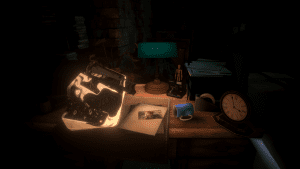
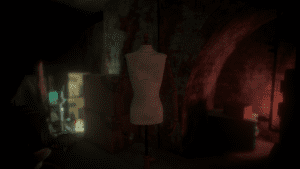
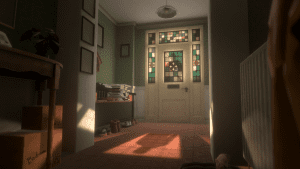

What inspired you to create this VR experience?
“The inspiration for creating this VR experience stemmed from a desire to address the stigma surrounding disorders that cause memory decline and accompanying mental health issues in an engaging and impactful way. We wanted to utilize the immersive nature of VR technology to create an experience that was not only absorbing but also engaged users about the complexities of living with mental health conditions.”
What is the goal of this VR experience?
“The primary goal of this VR experience is to cultivate empathy and understanding for people living with such issues as well as their caretakers. By placing users in the shoes of an unreliable protagonist, guided by their inner thoughts and emotions, we aim to provide a firsthand perspective of what it’s like to navigate life with a life-altering condition. Through interactive exploration and narrative engagement, we hope to challenge stereotypes, foster compassion, and encourage open dialogue.”
Without giving away too much, what are some behind the scenes of this experience?
“The aim and benefits of this VR experience include increased empathy, perspective-taking, and awareness of struggles. By immersing users in a simulated environment where they must navigate the challenges faced by the protagonist, we aim to promote understanding and reduce the stigma surrounding disorders and mental health issues that stem from memory and communicative complications. Additionally, the experience may encourage users to seek out resources and support for themselves or others who may be struggling with similar challenges.”
What are your favorite things about creating this VR experience? What are some challenges?
“One of my favorite aspects of creating this VR experience was the opportunity to collaborate with experts and artists in the field of VR technology and interaction design. Although a technology that has been around for a while, few applications utilize gaze tracking effectively as a part of their storytelling mechanisms. By integrating an immersive gaze-tracking-based interaction scheme, the experience ended up being very emotionally impactful. One of the challenges we faced was balancing the immersive storytelling elements with the need to convey sensitive mental health themes responsibly and respectfully. It was a delicate balance, but one that we believe ultimately enhances the overall effectiveness of the experience.”
Trailer video:
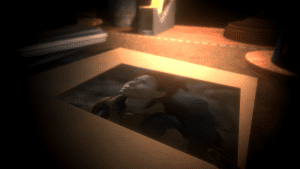
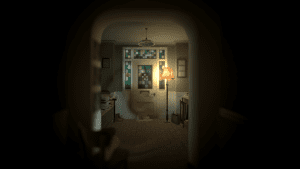
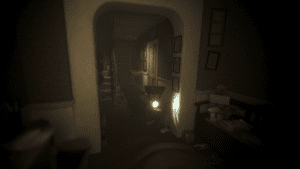

By Majdulina Hamed.
Published to Nicholson News on April 4th, 2024.
If you have any news, accomplishments or highlights about your work or life, please be sure to share them with us, by emailing us at NicholsonNews@ucf.edu.